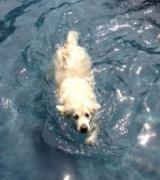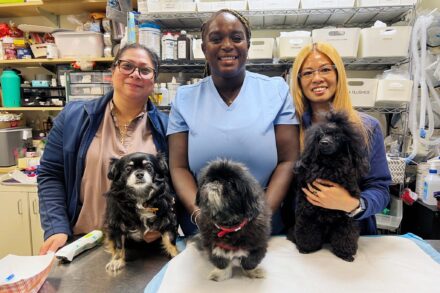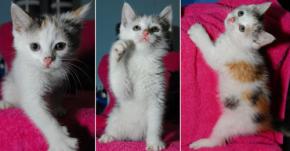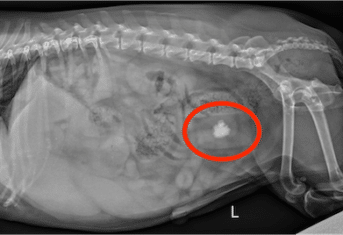A Good Day @The AMC!

A Good Day @The AMC!
I had an especially good day at The Animal Medical Center one day last week and so did everyone else. Our hard work was rewarded with positive outcomes for many wonderful pets.
A cancer check up
Becky, a graceful Golden Retriever, had an appointment for a follow up on her thyroid tumor which was surgically removed nearly a year ago. After surgery, she received a total of four chemotherapy treatments. I administered two drugs, doxorubicin and carboplatin, using an alternating treatment protocol. Now she needed a new chest x-ray since the lungs are where thyroid tumors spread most commonly. It was a tense wait for everyone, her owner and her oncology team, but we were rewarded when the radiology report indicated her tumor had not spread.
A happy heart
The cardiologists saw a Boxer who suffers from a form of heart disease found commonly in this dog breed. In Boxers, fat replaces the normal heart muscle and causes abnormal heart beats which can lead to sudden death. This disease, known as arrhythmogenic right ventricular cardiomyopathy, was first diagnosed by cardiologists working at The AMC and studying Boxers with heart problems. This particular Boxer and her cardiologist were having a good day, like I was. At first she had 22,000 abnormal heart beats measured using a continuous heart monitor called a Holter monitor. Initial results indicated treatment with heart medications decreased the number of abnormal beats to only 51 abnormal beats in over 110,000 beats counted in a 24 hour period!
Renal medicine rejoices over urine
Since every pet urinates, you might think urine would not be a cause for celebration, but The AMC’s Renal Medicine & Dialysis Service does. When kidneys suffer from serious infection or obstruction, they can actually completely stop making even the smallest drop of urine. Using dialysis, AMC’s kidney specialists can replace the filtration function of the kidneys and prevent serious illness from a buildup of toxins in the bloodstream. But until the kidneys start to heal, cats and dogs may not urinate for days. The first time a dialysis patient urinates, an average day becomes a great day since we know the kidneys are finally getting better.
Surgeons perform less surgery and are glad
Henry was diagnosed with a lung tumor. Because his doctors made an early diagnosis, his tumor was small making it amenable to a minimally invasive removal. The surgeons used a thorascope – a device with a tiny camera attached. The camera was inserted into Henry’s chest through a small incision. Its progress toward the tumor was viewed on a large screen monitor. Once the exact location of the tumor was identified, a second small incision was made through which the lung tumor was removed using a surgical stapler. Because of the minimally invasive approach, Henry was discharged from the hospital the next day rather than several days later, which is typical when traditional surgery is used.
Even though these stories are about different pets, different diseases and different veterinary specialists, they share a common theme, improving the health of pets so they spend as little time as possible @The AMC and spend more time at home with their families enjoying life.

































